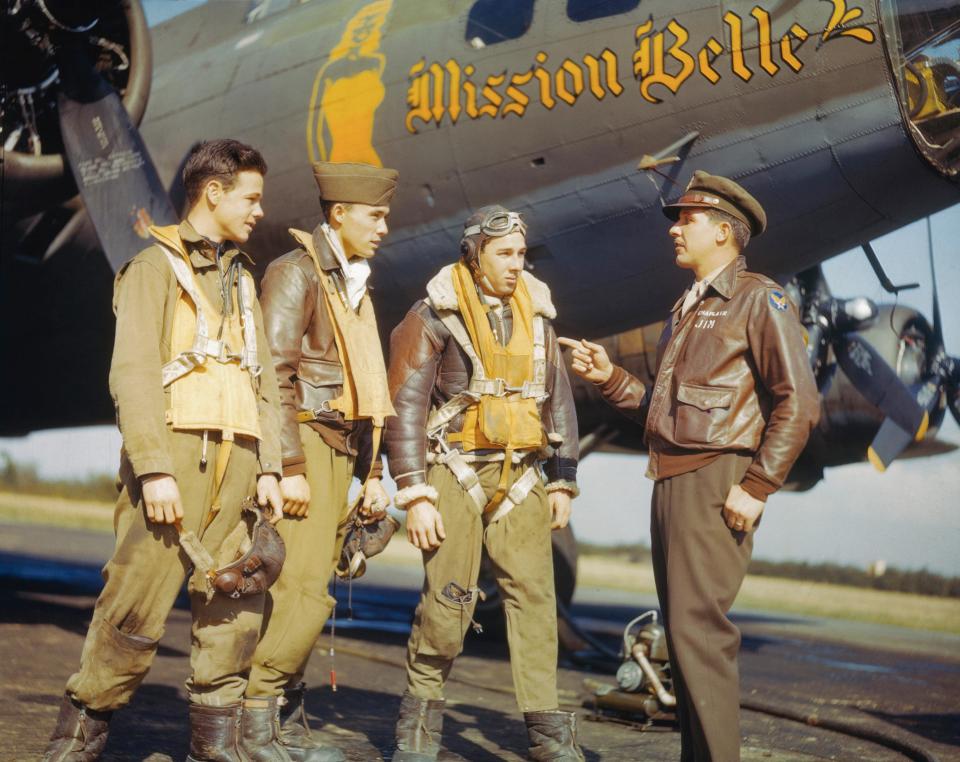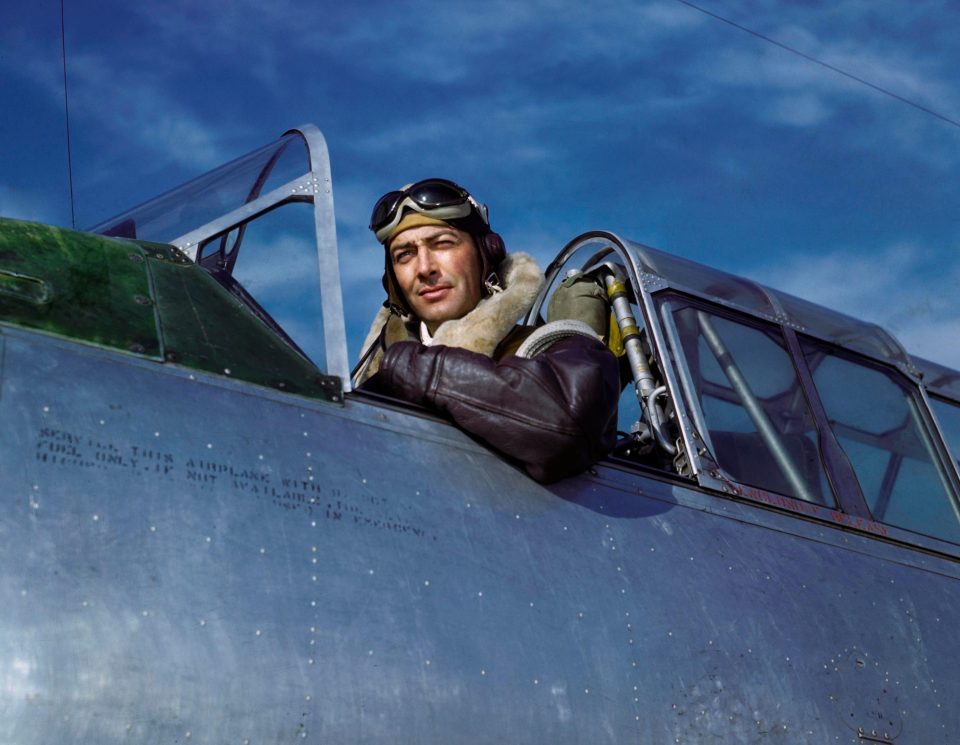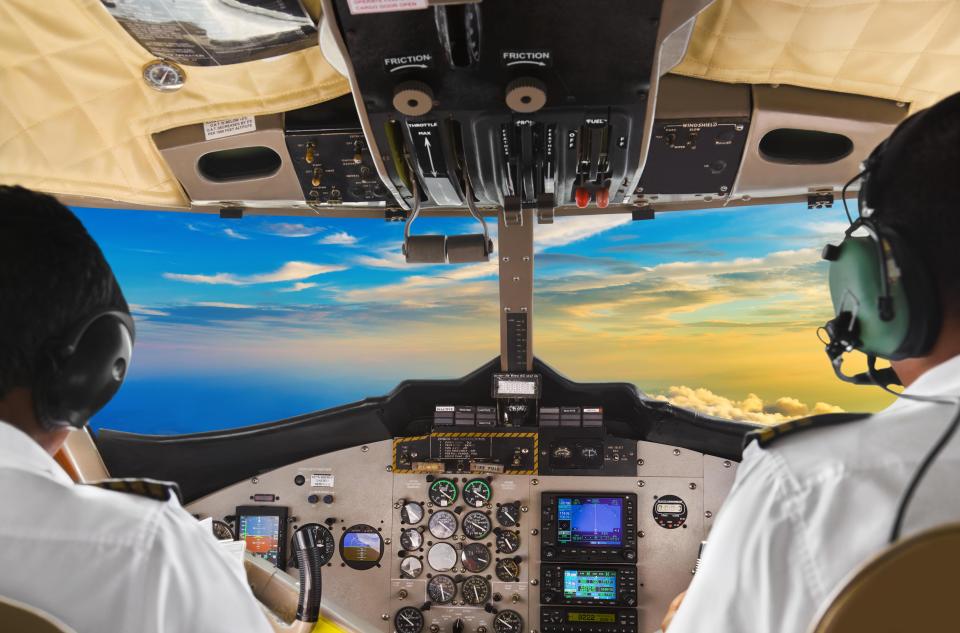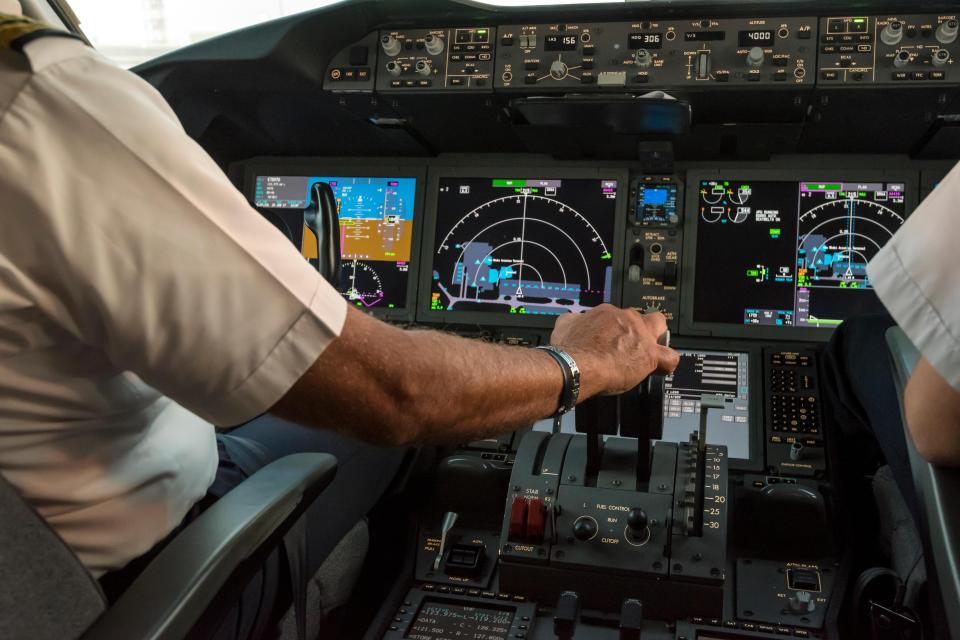Why pilots say ‘Roger that’ to each other when flying planes
Pilots are often saying these famous words when then in control of a flight - but what do they mean, and where did the phrase come from?
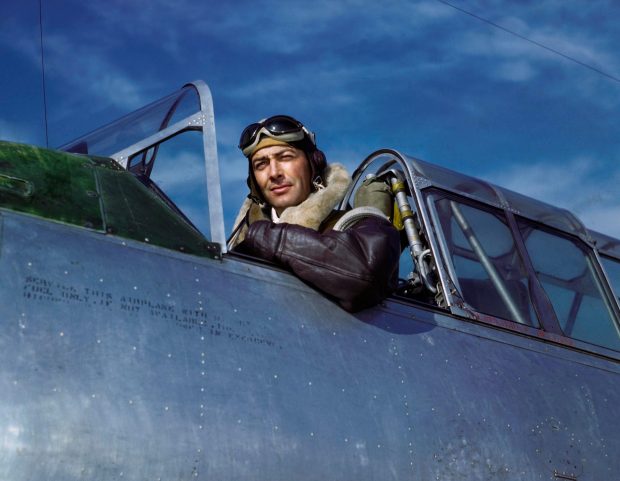
EVERYONE knows that pilots use the phrase “Roger that” when they’re in the air – but have you ever given any thought as to why?
The reason goes back to some of the very first flights.
A pilot needs support from staff on the ground when flying – but when the first plane was flown by the Wright bothers in 1903, there was no such thing as radio communication.
, during the Wright brothers’ first flight, they used flares, hand signals and coloured paddles to communicate while the plane was in the air.
As technology advanced, pilots began to use Morse code to communicate in the years before 1915, when air-to-ground voice transmission became possible.
To confirm a message had been received, they would signal the letter “R” in Morse code.
When communication switched to radio, pilots carried on using the letter “R” to confirm a message but started to use the word Roger.
While we now use the word "Romeo" in the phonetic alphabet for the letter R - in the past "Roger" was used instead.
As not all pilots speak English, it was decided by the International Telegraph Union in 1927 that "Roger" would be an easier command than “received”.
The term than went on to become well-used as part of the international aviation language.
Pilots also used it during World War II, which further cemented it in history.
Although Romeo is now used instead of Roger in the phonetic alphabet, “Roger that” continues to be used widely around the world by pilots.
It's not just Roger which is used by pilots all over the planet - pilots have an entire special language that they must speak, whatever their nationality.
The language of flight, or Aviation English - which consists of around 300 words - is a combination of professional jargon and plain English.
Pilot speak... and what it means
Do you know your squawk from your pan-pan?
Affirm - Contrary to popular belief, pilots do not say "affirmative" when they mean yes - the correct term is affirm, pronounced "AY-firm".
Approach - Coming into land.
Deadhead - This refers to a member of the airline crew who is travelling in a passenger seat.
Mayday - This is one you don't want to hear. The distress call for life-threatening emergencies, such as complete engine failure. It comes from the French ‘m’aidez’ (‘help me’). Pilots must stay it three times at the start of a radio call.
MEL - Minimum Equipment List - this means a particular aircraft appliance is broken but is not needed for safe flight - such as the coffee maker.
Pan-pan - The next level of emergency down from a Mayday; used for situations that are serious but not life-threatening. Originating from the French word ‘panne’, meaning a breakdown. You say it three times: "pan-pan, pan-pan, pan-pan".
Roger - This means ‘message received’, but it doesn’t necessarily mean that you’ll comply.
Squawk - To squawk is to set your transponder (a device for receiving a radio signal) so that your location can be identified on a radar. Pilots might be asked to ‘squawk Mode Charlie’ or ‘squawk ident’, which are unique settings to help air traffic control to see where you are.
Standby - This means "Please wait" and this is usually said when the air traffic controller or pilot is too busy to take a message.
Wilco - An abbreviation of "will comply", meaning received the message and will comply.
It was created to avoid pilots and air controllers mishearing each other - to avoid potentially fatal accidents taking place.
One of the deadliest plane disasters in history on a 1977 flight to Tenerife was partly caused by language confusion.
Tragically with Dutch and English words being confused and due to poor weather conditions, a control tower did not realise that two planes were headed for collision.
At least 583 people were killed.
Following several such air traffic accidents, the International Civil Aviation Organization (ICAO) suggested that English should be the international language of aviation.
All pilots and air traffic controllers must have at least a basic knowledge of it.
But it's not English as we know it.
According to the Learning to speak on the aircraft radio is one of the most challenging aspects of learning to fly, and new pilots must sit written and practical exams to prove their proficiency."
MOST READ IN TRAVEL
To understand pilot speak, you must first learn the international phonetic alphabet.
Then comes a list of words you may have heard on flights such as "roger" - meaning understood,"affirm" - meaning yes, and "approach" meaning coming in to land.
While the language of aviation is continually changing, pilots are required to pass strict language tests in order to fly planes safely.


